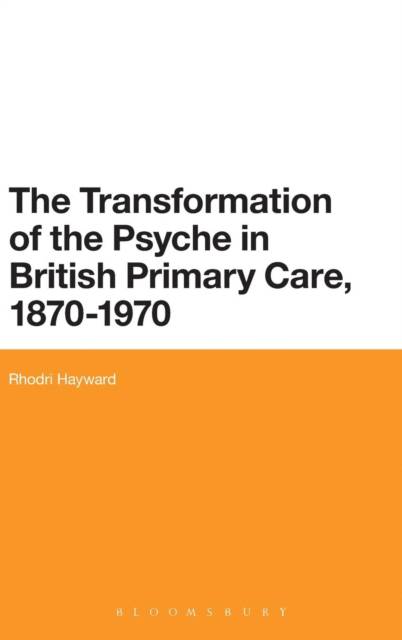
- Afhalen na 1 uur in een winkel met voorraad
- Gratis thuislevering in België vanaf € 30
- Ruim aanbod met 7 miljoen producten
- Afhalen na 1 uur in een winkel met voorraad
- Gratis thuislevering in België vanaf € 30
- Ruim aanbod met 7 miljoen producten
The Transformation of the Psyche in British Primary Care, 1880-1970
Rhodri HaywardOmschrijving
Conflicting models of selfhood have become central to debates over modern medicine. Newspaper columnists and new age gurus claim that the roots of many of our physical ailments lie in repressed experiences and emotions. Critics of biomedicine argue that a renewed engagement with the patient's inner feelings is needed to humanise contemporary clinical practice. Government initiatives extend medicine's remit beyond the maintenance of the population's health to the achievement of 'well-being': the psychological state of the population is now used to benchmark the effectiveness and success of policies. These debates, in turn, have helped shape contemporary culture. Concepts of 'stress' and 'psychosomatic illness' have become part of every-day speech, allowing us to interpret physical disorders as a commentary on our personal troubles or adverse circumstances. Yet we still lack a clear historical account of how this psychological sensibility came to be established.
Psychology and Medicine in Modern Britain will remedy this situation by demonstrating that there is nothing inevitable about the current connection between health, identity and personal history. It traces the changing conception of the psyche in Britain over the last two centuries and it demonstrates how these changes were rooted in transformed patterns of medical care. The shifts from private medicine through to National Insurance and the National Health Service fostered different kinds of relationship between doctor and patient and different understandings of psychological distress. Psychology and Medicine in Modern Britain examines these transformations and, in so doing, provides new critical insights into our modern sense of identity and changing notions of health that will be of great value to anyone interested in the modern history of British medicine.Specificaties
Betrokkenen
- Auteur(s):
- Uitgeverij:
Inhoud
- Aantal bladzijden:
- 288
- Taal:
- Engels
Eigenschappen
- Productcode (EAN):
- 9781780937267
- Verschijningsdatum:
- 13/03/2014
- Uitvoering:
- Hardcover
- Formaat:
- Genaaid
- Afmetingen:
- 157 mm x 236 mm
- Gewicht:
- 544 g

Alleen bij Standaard Boekhandel
Beoordelingen
We publiceren alleen reviews die voldoen aan de voorwaarden voor reviews. Bekijk onze voorwaarden voor reviews.











